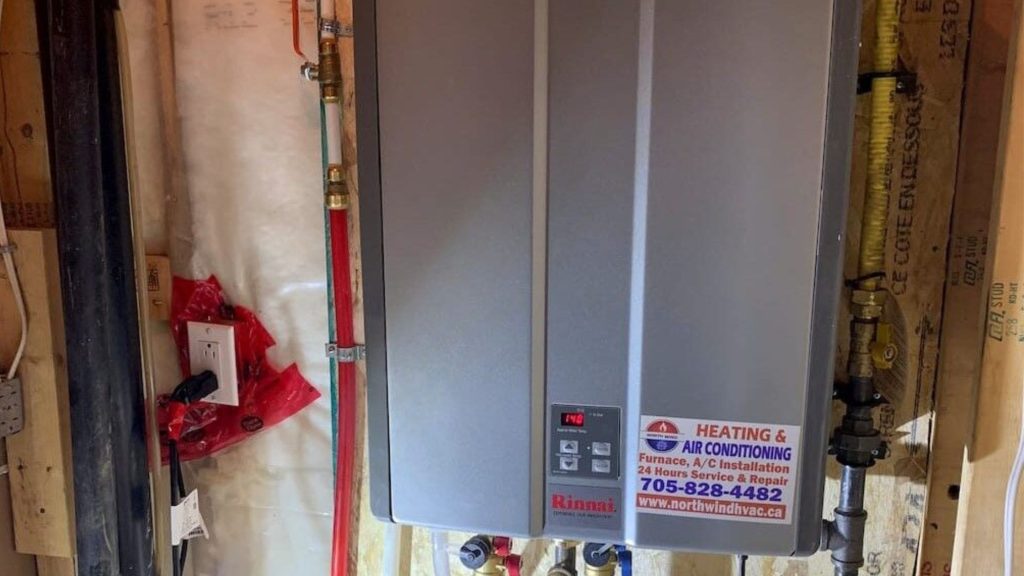If you’re a homeowner, you’ve certainly at one point asked what size tankless water heater do I need. As the single system responsible for supplying hot water to every faucet and shower in your home, selecting a tankless water heater with the right size capacity is critical. In addition to just capacity, though, it’s important to think about energy consumption, maintenance requirements and costs, installation, unit lifespan, government incentives, and manufacturer warranties. It’s all of these items, in combination with adequate sizing, that will determine whether or not a system is right for your home.
Tankless water heaters are much smaller than traditional units, and they are rated by the maximum temperatures possible at various flow rates. To determine the size your home will need, you’ll want to determine the number of devices the water will flow through, the flow rate of each device, and the temperature rise required. As an important note, do not focus on money savings by undersizing your tankless water heater, as it’s almost certainly going to lead to future frustration and issues. Before diving into the details, here is an easy-to-consume table that outlines the standard tankless water heater sizing requirements based on family size and usage:
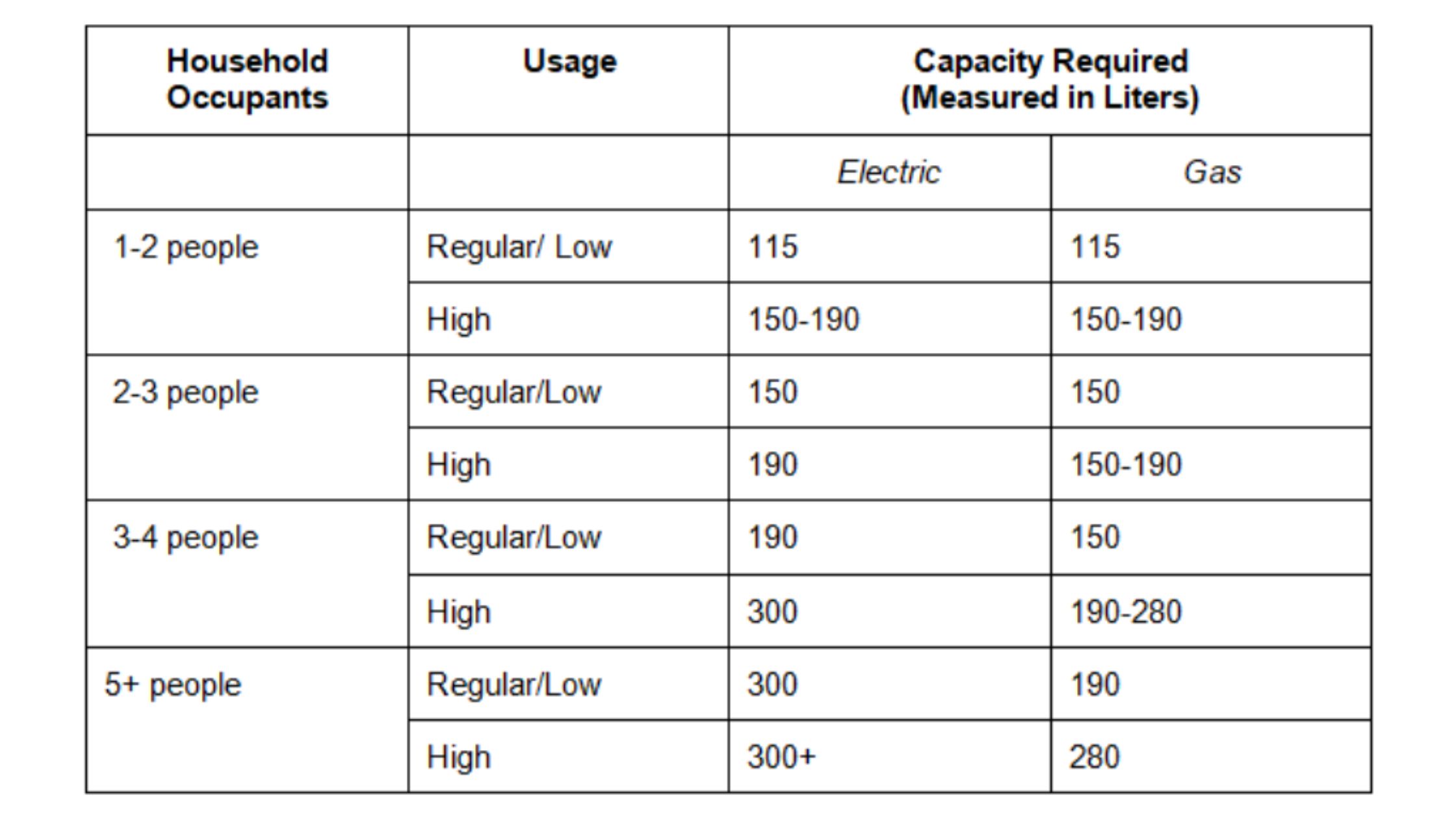
With that in mind, let’s get started with the information you’ll need to select the right system for your home!
Determine the Maximum Number of Devices You Want to Run
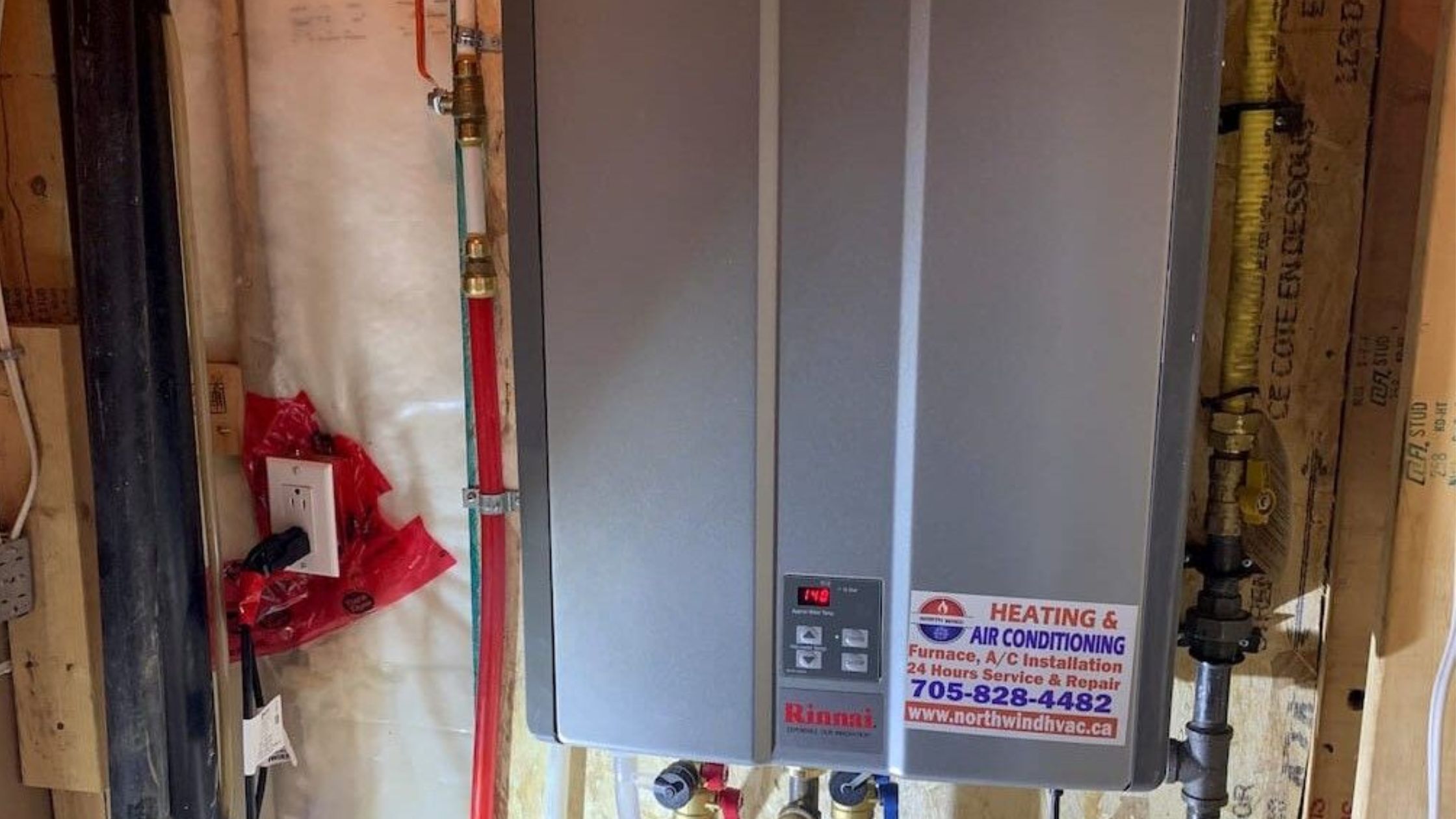
To start with the tankless water heater sizing process, you’ll need to determine how many different devices the unit will be servicing. This will primarily include showers and faucets throughout the home, amongst other items. Once you have the devices accounted for, you’ll need to determine their flow rates – say, 2.8 liters per minute, per faucet, and 9.8 liters per minute, per shower – and add them up. With this capacity now determined, you’ll be able to calculate the hot water tank dimensions required. It’s important that water heater sizes meet all device requirements – at a minimum – with excess capacity being more than welcome should future renovations result in additional units.
Determine Required Temperature Rise
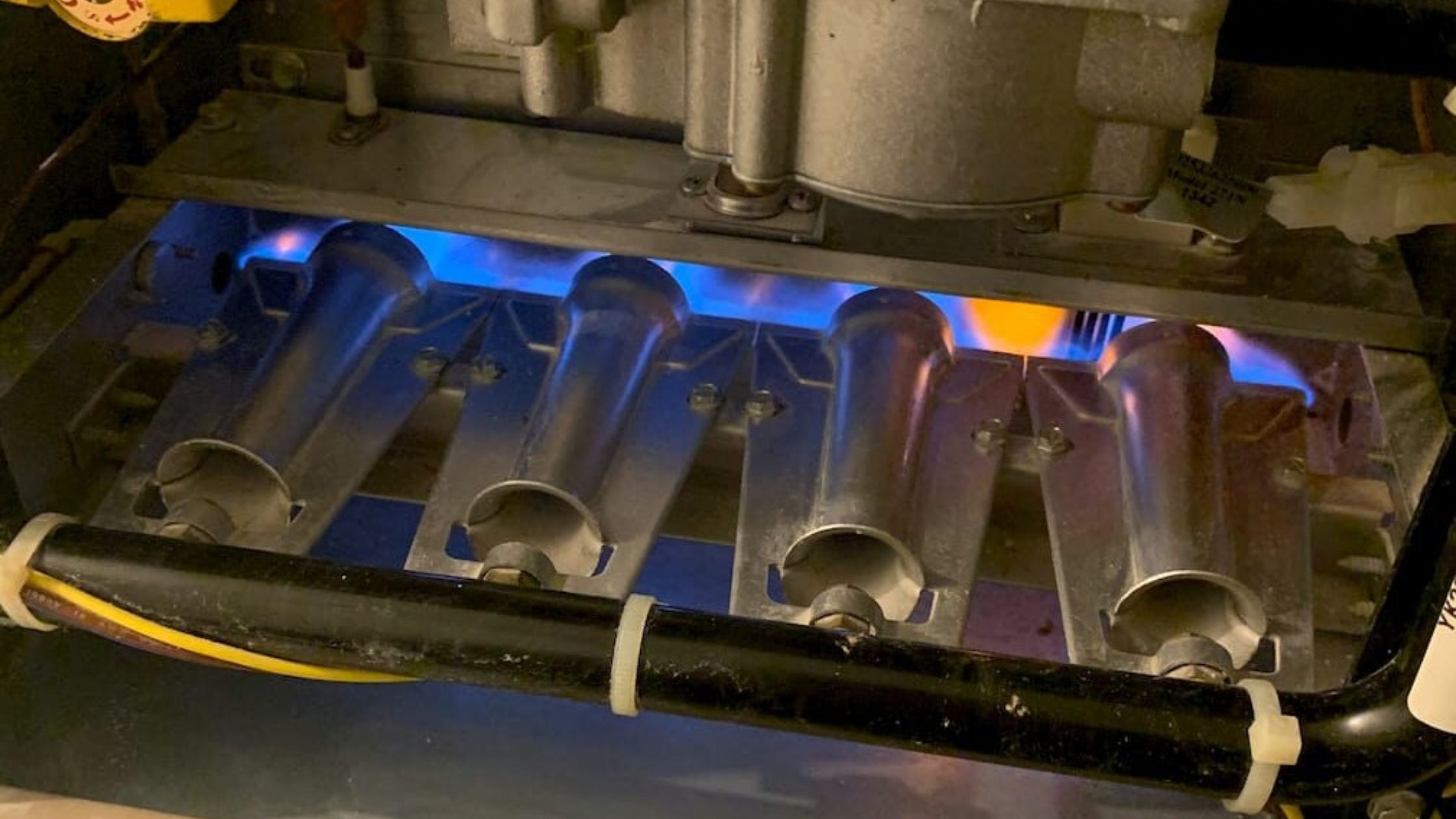
In order to determine the required temperature rise, you’ll need to subtract the incoming water temperature from the desired output temperature of the devices in your home. Unless you were given specific information from an authorized individual, assume that your incoming water temperature is approximately 10 degrees celsius. As a side, it’s best to approximate using a slightly lower incoming water temperature number to ensure that you don’t accidentally undersize your unit.
With the incoming water temperature now determined, you can complete the remainder of the calculation. Most homeowners will want water heated to a maximum of 40-45 degrees celsius, meaning that a tankless water heater with a temperature rise capacity of 35 degrees celsius or more is required.
Flow Rates
The next item of importance is to assess the tankless water heater flow rate. Put simply, this is the amount of water you’ll need at any given time – ensuring that you get a system large enough to meet household demand. Will you be running two showers at once? Do you often have multiple faucets in use at the same time? The chart below outlines standard household fixtures, alongside their average flow usage and temperature requirements:
FIXTURE | AVERAGE FLOW LPM | AVERAGE TEMP. |
Tub | 15 LPM | 39°C |
Shower | 9.5 – 11 LPM | 40°C |
Washing Machine | 7.5 LPM | 49°C |
Dishwasher | 5.5 LPM | 43°C |
Kitchen Sink | 5.5 LPM | 43°C |
With this, you can determine the total amount of flow required. If you often run two showers at once, or want to be sure that your water heater has the capacity to do so, you’ll need roughly 20 liters of hot water per minute from the tankless water heater. Regardless of the combination of fixtures, be sure that you’re sizing your tankless water heater in a way that allows your home to continually cycle hot water to all fixtures in use.
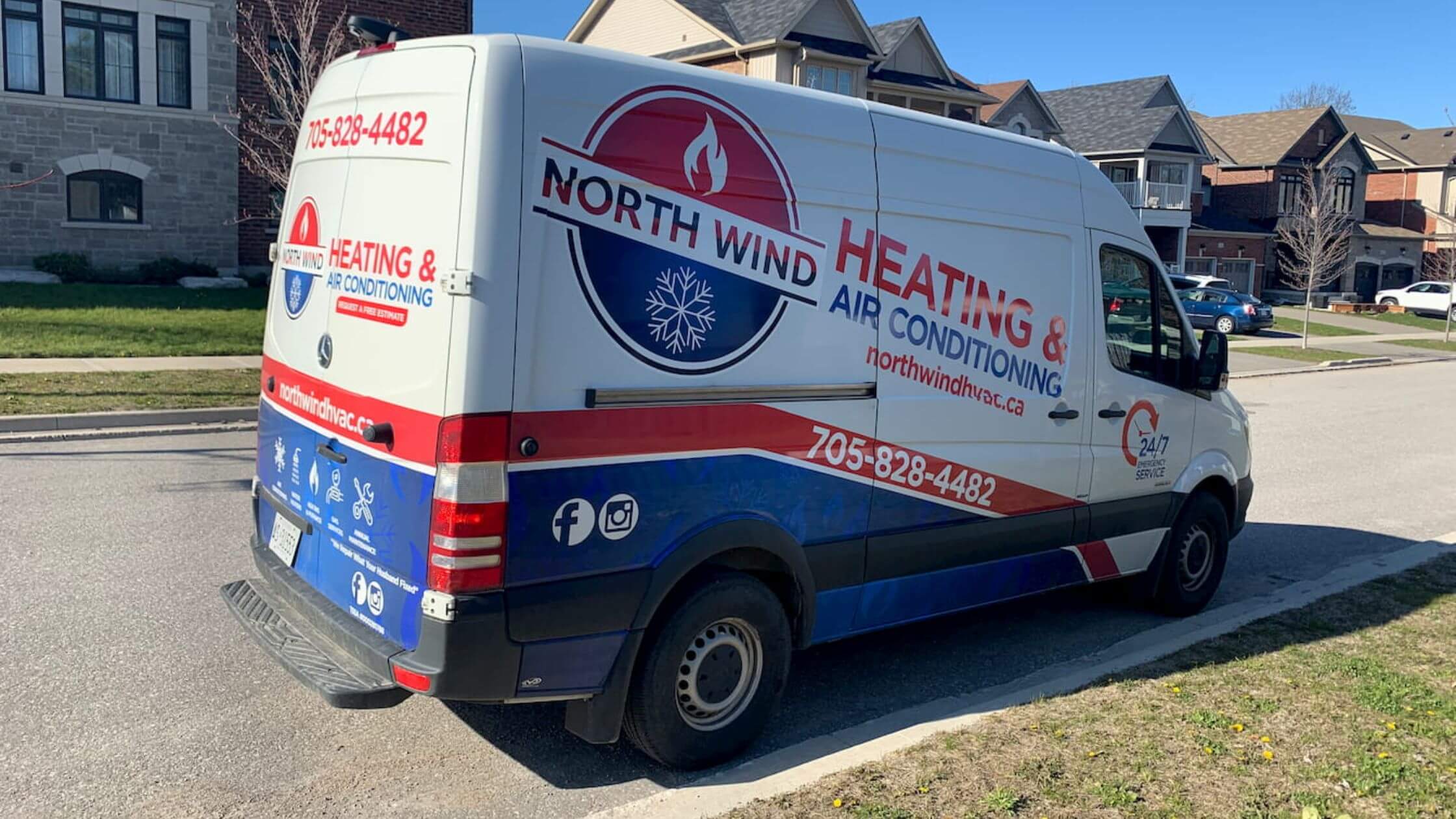
If you’re looking to have a new tankless hot water heater installed in your home, North Wind Heating and Air Conditioning has you covered. With years of experience in tankless water heater installation and maintenance, our expert team is well equipped to solve any problem at hand. To learn more about our services, or to request a free project estimate, contact us today!
